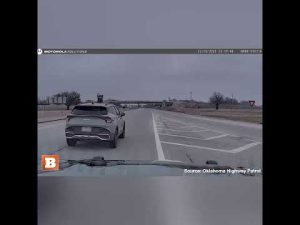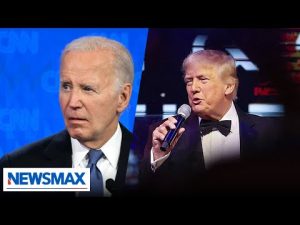In recent discussions about law and accountability, a controversial topic has emerged surrounding the actions and decisions of prominent public figures and their implications for ethical governance. The focus has turned to Dr. Anthony Fauci and the conversations surrounding pardons related to the January 6 protests. While the left tends to dismiss these concerns, it is crucial to analyze what these pardons and preemptive legal protections signal about our political system and its integrity.
Numerous observers have expressed disbelief that a figure such as Dr. Fauci, who led the national response to the COVID-19 pandemic, could possibly require a pardon. This situation raises red flags. If he has nothing to hide and acted in good faith, why would he accept a preemptive pardon? The acceptance of this pardon suggests a recognition that there are potential legal repercussions lurking in the shadows. For those who follow the rules of law and order, this does not sit well. It only compounds the sense that there are underlying issues regarding transparency and accountability among the political elite.
It is essential to acknowledge that when individuals like Fauci take legal safeguards, suspicion naturally arises. What defenses are they preparing for, and what implications does this hold for the average American? The irony is striking. Those who vented outrage over January 6 and branded the participants as insurrectionists are now faced with the reality that their favored leaders too need to consider legal strategies for their actions. This hypocrisy underlines the alarming disconnect in the progressive narrative. If the events of January 6 were the egregious threat to democracy that they claimed, then what does it say that figures involved have any fear of prosecution?
The rationalizations behind these pardons contribute to a growing sentiment that many in power escape meaningful consequences for troubling actions. This situation creates an atmosphere of mistrust between lawmakers and citizens. When the public perceives that figures like Fauci are receiving legal protections without justified cause, it brings into question the rule of law and integrity of governance. As Americans, the stakes have never been higher for accountability across the board.
The left has made it a habit to demonize and ridicule those who express skepticism toward government actions related to COVID-19 and other sensitive topics. Nevertheless, it is vital to maintain a spirit of inquiry and call for honesty from those in power. As these events unfold, asking the tough questions about why leaders are seeking pardons and what this means in the larger context of accountability and justice should not be taboo. As citizens, they have a right to demand a government that operates under the principles of transparency and integrity, free from the shadow of deceit.
In conclusion, the issue of pardons and preemptive legal protections for high-profile figures represents a broader crisis of confidence in our political system. The need for full accountability and a commitment to truth is essential for restoring faith in the government. Both sides of the aisle must confront these realities head-on. The future of America’s democracy demands leaders who are willing to face the music when their actions come under scrutiny, not individuals covertly seeking absolution before any charges are laid. It’s time for both citizens and leaders to step up, champion the values of law and order, and demand a government that serves its people without the burden of secrets and lies.







